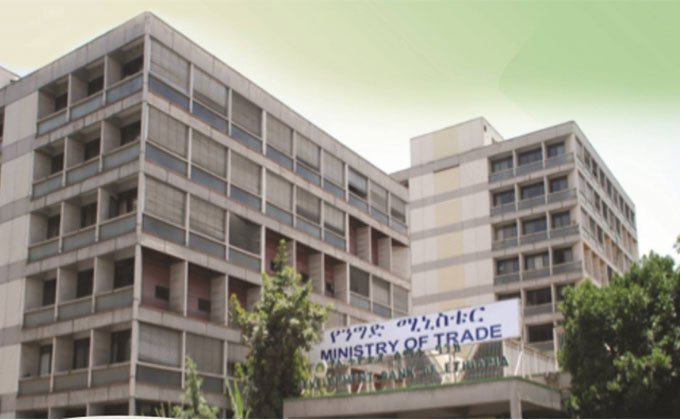
My Opinion | Nov 16,2019
Jun 29 , 2024
By Birhanu Beshah
In recent months, the Ministry of Innovation & Technology (MoIT) has embarked on a noteworthy path to nurture Ethiopia's digital ecosystem, organising two consecutive expos: Startups Ethiopia in April and STRIDE Expo 2024 the following month. These events have placed digital technology and startups at the centre of discussions, demonstrating the government’s ambition to make the digital sector a foundational pillar of the national economy, following agriculture, industry, and services.
The federal government has shown a robust inclination towards leveraging the digital sector as a driver of economic growth. A policy document, "Digital 2025", illustrates this vision, outlining the sector's direct and indirect contributions to the economy. Directly, the sector, including telecom companies, cloud service providers, and digital platforms, constitutes a considerable portion of the national economy. For instance, the historic licensing of Safaricom and the entry of cloud service providers like Raxion into the market show this shift.
Indirectly, the digital sector's development is expected to stimulate other sectors by reducing market transaction costs and enhancing efficiency. The policy targets agriculture, manufacturing, tourism, and finance as areas mature for transformation. The strategic approach has catalysed the growth of fintech companies, with "TeleBirr" emerging as a notable success story.
While the government's efforts to build a robust digital economy are commendable, there are concerns that, if not adequately addressed, these initiatives could exacerbate the country's vulnerabilities. One immediate risk area is the expansion of digital consumption. The digital infrastructure, equipment, and user gadgets required to support this growth are predominantly imported, which could further strain Ethiopia’s trade balance.
A closer look at the recent expos reveals a focus on the domestic market among startups and new businesses.
During the closing ceremony of the STRIDE Expo, various awards were distributed across categories such as "lifetime achievement, startups, and hackathons." Notably, the Lifetime Achievement award recognised participants like Ayana Birru (Eng.), who developed the Amharic typewriter in the 1930s, and Daniel (PhD), who created a computer keyboard for Geez alongside Daniel Mebratu, the founder and owner of Dan Lift Technology.
In the startup category, winners included Gari Logistics, a transport service matchmaking platform; Arfi Pay, a fintech company; and Guzo Technologies. The hackathon, a competition among young coders, demonstrated the innovative potential of the next generation, with award-winning teams developing apps for tourism and healthcare. However, these awardees predominantly target the domestic market, raising concerns about their long-term viability in the face of global competition.
For instance, tourism and logistics platforms developed locally might struggle to compete with well-established global counterparts. Proponents of focus on the domestic market often cite import substitution as a key benefit, suggesting that reducing the need for foreign currency can help address the trade deficit. They argue that "a dollar saved is more than a dollar gained," implying that import substitution can lead to capacity accumulation, and, eventually, boost export revenues.
However, scepticism abounds. As a new economic pillar, the digital sector will likely introduce new import demands, potentially exacerbating the trade deficit rather than alleviating it. There should be a holistic view of the digital sector’s growth to encourage advancements and avoid a perpetuating cycle of trade imbalance.
The notion of capacity accumulation through a domestic market focus should raise questions about the ability to learn and compete in the global market. The experiences and challenges faced in domestic and export markets differ significantly. Ethiopia must embrace an export-oriented approach to optimise the digital sector's contribution to export gains. While valuable for initial growth, the domestic market-driven strategy needs to evolve to compete internationally to ensure sustainable benefits.
PUBLISHED ON
Jun 29,2024 [ VOL
25 , NO
1261]


My Opinion | Nov 16,2019

My Opinion | Apr 09,2023

Fortune News | Feb 13,2021

Fortune News | Oct 12,2019

Radar | Aug 13,2022

Radar | May 04,2019

Commentaries | Feb 25,2023

Fortune News | Aug 04,2024

Viewpoints | Aug 03,2024

Radar | Nov 21,2018

Photo Gallery | 174873 Views | May 06,2019

Photo Gallery | 165092 Views | Apr 26,2019

Photo Gallery | 155355 Views | Oct 06,2021

My Opinion | 136738 Views | Aug 14,2021

Dec 22 , 2024 . By TIZITA SHEWAFERAW
Charged with transforming colossal state-owned enterprises into modern and competitiv...

Aug 18 , 2024 . By AKSAH ITALO
Although predictable Yonas Zerihun's job in the ride-hailing service is not immune to...

Jul 28 , 2024 . By TIZITA SHEWAFERAW
Unhabitual, perhaps too many, Samuel Gebreyohannes, 38, used to occasionally enjoy a couple of beers at breakfast. However, he recently swit...

Jul 13 , 2024 . By AKSAH ITALO
Investors who rely on tractors, trucks, and field vehicles for commuting, transporting commodities, and f...

Oct 18 , 2025
The political establishment, notably the ruling party and its top brass, has become p...

Oct 11 , 2025
Ladislas Farago, a roving Associated Press (AP) correspondent, arrived in Ethiopia in...

Oct 4 , 2025
Eyob Tekalegn (PhD) had been in the Governor's chair for only weeks when, on Septembe...

Sep 27 , 2025
Four years into an experiment with “shock therapy” in education, the national moo...

Oct 18 , 2025 . By NAHOM AYELE
In a sweeping reform that upends nearly a decade of uniform health insurance contribu...

Oct 18 , 2025 . By BEZAWIT HULUAGER
A bill that could transform the nutritional state sits in a limbo, even as the countr...

Oct 18 , 2025 . By SURAFEL MULUGETA
A long-planned directive to curb carbon emissions from fossil-fuel-powered vehicles h...

Oct 18 , 2025 . By BEZAWIT HULUAGER
Transaction advisors working with companies that hold over a quarter of a billion Bir...